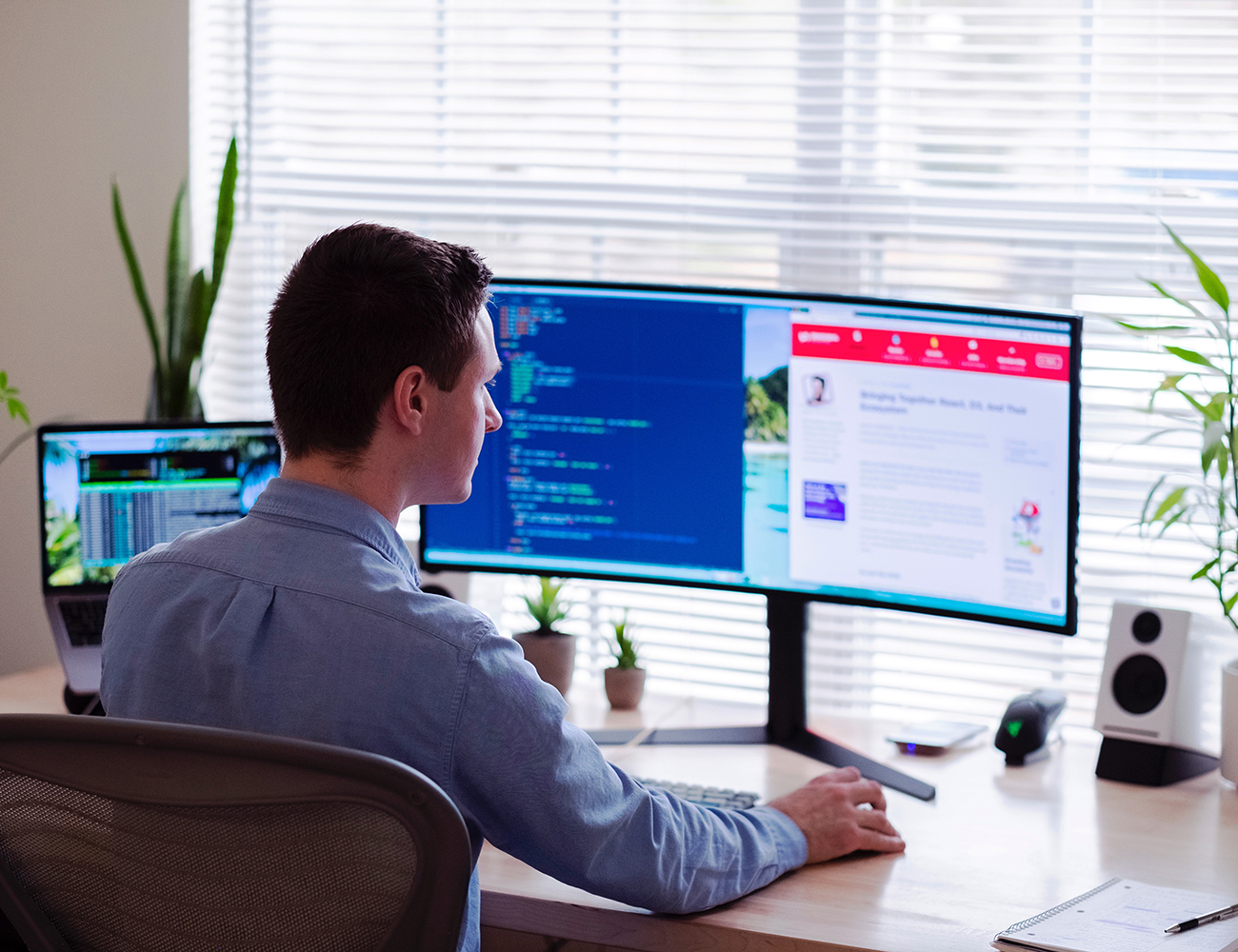How HR Can Help Employees During The COVID-19 Epidemic

Dear Friends,
These are extraordinary times and, let's be honest, no-one is exactly sure what to do or what to expect. COVID-19 has impacted the entire globe within a matter of months and will continue to do so for the bulk of 2020.
Our way of life, and way of working has been completely transformed. Whilst businesses are focussed on commercial issues, we wanted to explore the human impact of these changes.
We understand that for many workers, they are suddenly going to be far more isolated, being confined to their homes. Life and business must of course do its best to carry on, but this isolation combined with worry and concerns over personal health, and that of friends, colleagues and loved ones, is going to make the months ahead a difficult time for all.
So, at Thymometrics we sat down and brainstormed how we can help. Our initial thoughts are not so much on using our platform, but more on how HR can adopt new techniques and strategies to help minimize the human impact.
Even for employees who regularly work from home, the degree of isolation is increasing. For employees not used to spending seven days a week at home this can be a sudden and unwelcome change. It isn't just a lack of face-to-face meetings, it's the chats over the water cooler, the catch-ups over coffee, the lunch routines, or even the beer after work. It's therefore vital we do whatever we can to provide social interaction channels to counter the isolation.
So, here are our top suggestions on practical steps you can take to assist your people in adapting to these mandatory changes:
Social & Team Interaction
- Adopt team collaboration and communications tools. Reach out to your IT teams and see which platforms they would recommend. Most of these tools have free offerings so it is simple to organise a quick trial to work out which works best for you. You might even adopt more than one, at Thymometrics we use several. Our favourites include:
- Create non-work-related channels. In Slack, for example, you could create a "No_Work_Allowed" channel purely for people to drop into when they want to chat. You can kickstart this by having members of HR and Internal Comms on the channel even when no-one else is there, and ensuring they get a "Hi - how are you doing?" greeting when they choose to drop in. Depending on the size of your organization, you clearly might want several of these, broken down to different teams or sectors of your business.
- Create a tea-room channel for morning breaks.
- Create a lunch channel for people to logon to whilst eating lunch so they can chat to colleagues at the same time.
- Create "ideas for working from home" channels so people can raise a flag and help each other when dealing with remote working challenges.
- Encourage use of video in all channels rather than voice only - it makes a huge difference in reducing the sense of isolation.

Wellbeing & Me Time
- Ensure colleagues know they should block out "Me time" from their working day, whether that is for a stroll around the back yard, a sit on balcony or just a change of rooms for a 10-minute break.
- Why not share a list of wellbeing sites, introduce the idea of meditation, some daily exercise suggestions or simple yoga to break up the day to relieve stress? These measures can help workers get a new and uncluttered perspective on their day.
- The great thing about these types of activities is that we can be encouraged to continue once we move into more ‘conventional’ times, and they have been proved to improve our mental health, physical wellbeing and productivity.
Encouraging Switching On and Off
- One side-effect of working at home is it can feel like you are always-on, and of course we know all about that at Thymometrics! Seriously though, I heard a brilliant idea the other day from Scott Hanselman, of starting your day with a walk around the block (if it is safe and you are able) to signify getting to and starting work, and similarly another stroll at the end of the day to signify getting into home mode. If you are in lock-down, or unable to go out more than once a day, how about a walk around the garden, or even a tour of the house?
- In addition, it’s very important to take regular time-outs during the day to rest your eyes - it’s all too easy to sit in front of a computer screen for longer than usual if you have no distractions from general activities in the office.
Manage News Overload
- Discourage people to be glued to social media and news channels. Whilst everyone wants to keep up with what is going on, if you stream it, it will only yield higher anxiety and stress, which ironically reduced the effectiveness of the immune system. Whatever you dwell upon will increase in importance, it's part of our human make-up and how our brain works, so let's make sure we are not focussed on the news for every waking hour.
Management Practices
- Ensure all managers introduce a purely personal "How are you doing?" section at the start of their 1-2-1s. We would suggest you don't even start talking about work updates until you have run through how they are coping, feeling, and how their families are. Just a few minutes at the start of each call can really help.
- Ensure all managers and team leaders are doing 1-2-1s. Even if they haven't done so before. For managers who are new to this they might need some guidance from HR to get going.
Listening Channels
- Make sure all employees have a confidential, preferably anonymous, channel for their voice. Many people will not be comfortable openly expressing their anxieties and concerns, and without wishing to stereotype, this is particularly true for men. It is hugely beneficial if employees can find somewhere to talk freely, preferably without being identified, where they can express genuine concerns and emotions.
- Make sure all employees know how to ask for help. It sounds simple doesn't it, but left alone and isolated, they may sit on issues and problems rather than sharing them. Does everyone know where they can turn to if they start to feel a rising sense of panic, for example?
Inter-Team Working Practices
- Encourage an open "How can we help you?" approach for all departments. Even though business might be slightly less efficient, emphasising the human touch when dealing with internal staff will pay dividends in company morale.

Don't Expect Too Much
- Everybody's domestic situation is different, and people often choose to keep any domestic issues away from the workplace. So if employees are working from home, do remember that not everybody has a quiet place they can retreat to for work purposes, nor the opportunity to do so. Many will be working from kitchen tables surrounded by bored children and underwalked dogs, and there may be more than one homeworker
- Expectations of employees should be modified in the light of individual circumstances - the vast majority will be trying their best to make this work.
Spot Checking
- Do random check-ins with people to chat about their experience, any issues, challenges or suggestions to improve working remotely. Make sure these don't just focus on work, but crucially wellbeing and emotional support. Don't just send a memo asking for feedback, but actually select people to reach out to and ask them directly.
Ensure You Have Human Metrics
- If you use pulse style employee feedback systems, make sure you have questions or factors that capture the practical and emotional impacts of remote working.
- Of course, you may have you own thoughts on these survey questions, but some subjects you might consider are:
- how easy are staff finding remote working
- their stress levels (this important factor can be tracked over time via your survey to ensure you catch important shifts in opinion early and, if they are trending downward, take action to mitigate the problem)
- do they have appropriate communication channels
- are they aware of company policy around homeworking
- how comfortable are they about raising confidential concerns
I hope you find these suggestions useful in your own business. Please let me know if you have your own ideas and thoughts on how to deal with these difficult times, and I will share these too.
Warm wishes,

Jerry Pett
CEO, Thymometrics
Thymometrics will be donating 10% of all new revenues to the great work being done at Cambridge University to find a vaccine to fight COVID-19.
----------------------------------------------------
Thymometrics provides tools that improve employee engagement. Through real time, always-on surveys and feedback solutions, we provide revolutionary yet simple tools to empower employees and monitor wellbeing whilst providing managers with deep and useable insights to improve business culture, productivity and profitability.
For more information, please call 01223 750251, email info@thymometrics.com or visit thymometrics.com.
Photos from Unsplash